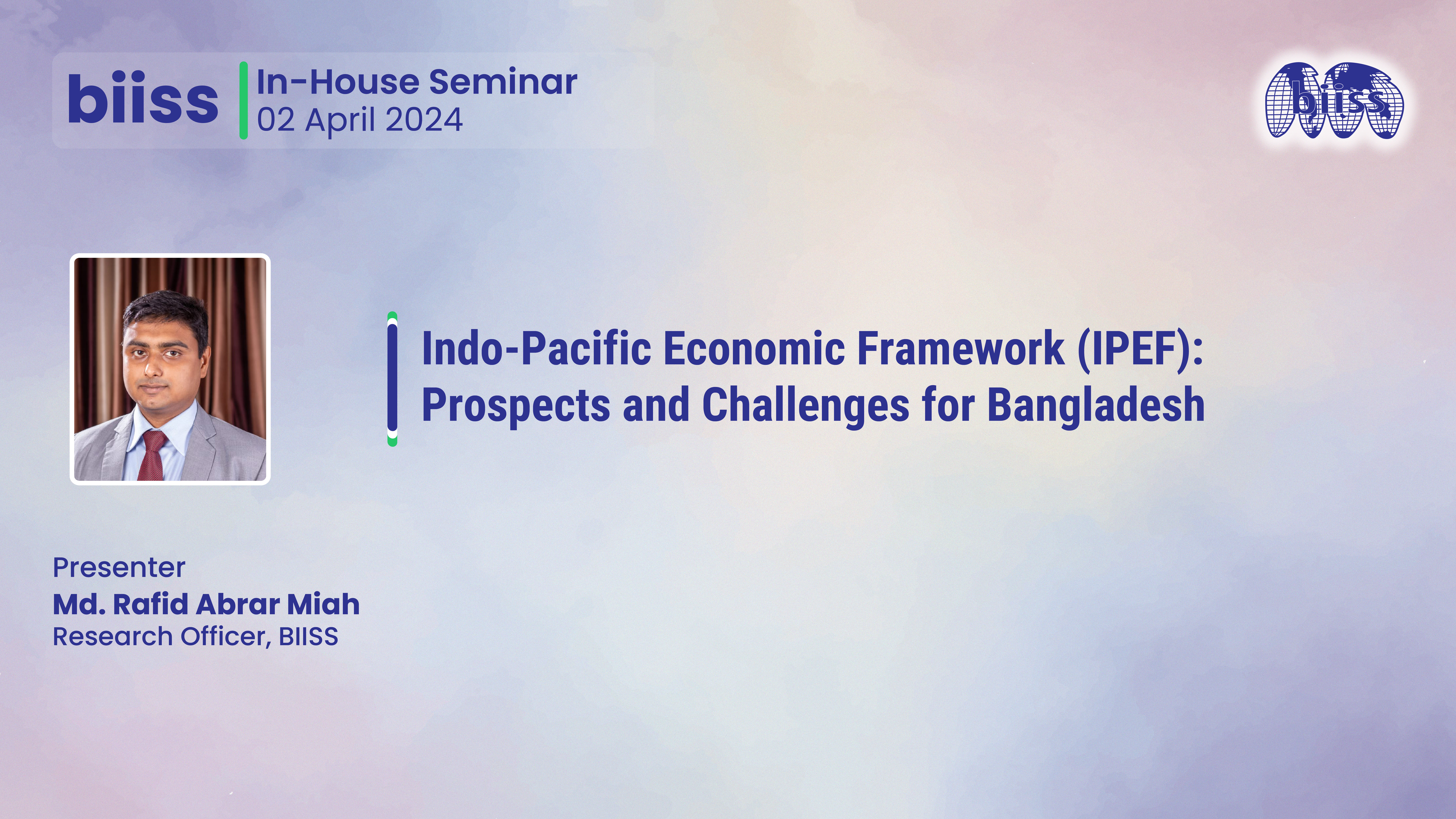"Indo-Pacific Economic Framework (IPEF): Prospects and Challenges for Bangladesh"

This in-house seminar provides a timely analysis of the Indo-Pacific Economic Framework for Prosperity (IPEF), a US-led initiative designed to strengthen economic engagement among partner nations in the region. Unlike traditional free trade agreements, IPEF is structured around four key pillars: trade, supply chains, clean energy, and fair economy (tax and anti-corruption). This discussion aims to dissect the framework's novel approach and evaluate the specific prospects and challenges it presents for Bangladesh. The seminar will explore the potential benefits of Bangladesh's participation, including the opportunity to align its economy with high-standard rules on digital trade, labor, and the environment, which could enhance its competitiveness in the long run.
A key focus will be on the "supply chains" pillar, analyzing how IPEF could help Bangladesh integrate into more resilient and secure global supply chains, particularly in a post-pandemic world. The "clean energy" pillar also offers significant prospects for attracting investment and technology to support Bangladesh's green transition. However, the seminar will also critically assess the challenges. It will question the tangible benefits of a framework that does not offer enhanced market access or tariff reductions. The discussion will delve into the potential costs of complying with IPEF's high standards, particularly on labor and environmental regulations, and whether these could pose a burden on Bangladesh's key industries. Furthermore, the geopolitical dimension of IPEF as a component of the broader US strategy in the Indo-Pacific will be analyzed, considering how participation might affect Bangladesh's crucial economic relationship with China. The objective is to provide a balanced assessment to inform a strategic decision on the nature and extent of Bangladesh's engagement with IPEF.